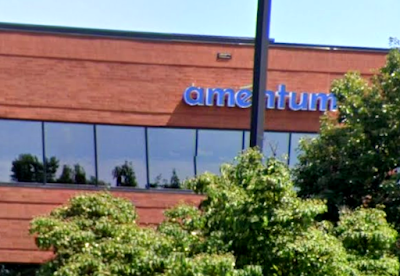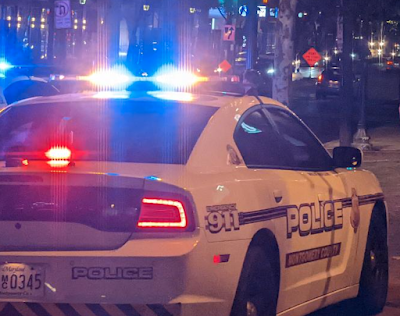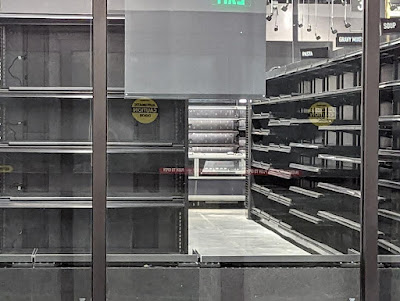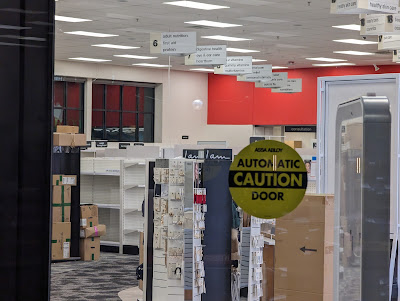The recent floating of a ban on gas stoves by federal regulators caused an uproar nationwide, but the Montgomery County Council's 2022
actual ban on natural gas energy in future home and building construction is already making waves in the county's real estate market. In recent weeks, some for-sale signs in front of Montgomery County homes have added a new shingle underneath: "Natural Gas AVAILABLE."
County homeowners fortunate to have a natural gas hookup, and the advantages and alternatives it provides, may now see a bump in their home values. Buyers dreaming of a true "chef's kitchen," showers that don't run cold just because the power is out, or a generator to keep everything on when electric power does go out, will have a static inventory of older properties to choose from.
Montgomery County's natural gas ban was an instructive moment in more ways than one. Of course, it reminds us all of how much the Council enjoys banning things. It's a cheap way to make news, look busy, and not have to spend much money in the process. All the costs fall on businesses and residents.
Perhaps even more intriguing is the revelation of how County environmental policy often has less to do with actual impact on climate change (though those melting paper straws do add a unique new flavor to our beverages), and more to do with accomplishing hidden or corrupt goals, payoffs, power grabs and other short-term gains. Such is the epic tale of the rise and fall of natural gas in Montgomery County's "green" policy.
It wasn't that long ago that we were told natural gas was "clean energy." This just happened to coincide with fracking mania, which created whole boom towns in often-remote parts of America for a time. Brown drinking water and earthquakes? Merely minor side-effects of "clean energy."
Montgomery County's elected officials and local environmental advocates were all-in on natural gas at that time, as well.
Way back in 1996, Montgomery County purchased its first compressed natural gas Ride On buses. Montgomery County Council staff regularly have referred to these CNG buses as "clean bus technology."
Montgomery County Executive Douglas M. Duncan touted the purchase of 19 more natural gas-powered Ride On buses in 2000, through a multi-agency agreement that included the Metropolitan Washington Council of Governments (MWCOG). "Through this agreement, we're helping to reduce traffic congestion and prevent pollution," Duncan said at the time. "The support of The Clean Alternative program has made it easier for the County to purchase low emission vehicles that reduce air pollution while lowering our fuel and maintenance costs."
Maryland Transportation Secretary John Porcari said that the purchase of these natural gas Ride On buses would "improve air quality and enhance the quality of life" of residents. Then-MWCOG Executive Director Michael Rogers said CNG Ride On buses were an "emerging strategy for improving air quality."
Sue Edwards of the Maryland-National Capital Park and Planning Commission wrote that the CNG Ride On buses used natural gas as a "clean burning fuel." CNG was "a mechanism to meet air quality objectives," she stated.
The most interesting endorsement of natural gas-powered Ride On buses came from Elliott Negin of the Natural Resources Defense Council. "Montgomery County is showing the way for our region," Negin was quoted as saying in the press release announcing the natural gas bus purchase.
Two years later, Negin and the NRDC were even more enthused about natural gas. WMATA had announced the purchase of 250 new natural gas CNG buses for the Metrobus fleet. "This is a great Earth Day present for the nation's capital, Maryland and Virginia," Negin said in a joint press release with the Sierra Club(!!). "Expanding Metro's natural gas program and retiring its polluting diesel buses is clearly the best choice for our public health and environment. It also is the best choice for strengthening U.S. energy security, since we get nearly all of our natural gas from North America, and more than half of the oil we consume is imported."
After reading that, you might wonder if Negin's article in Greater Greater Washington last month was written by an imposter.
"WMATA’s fleet is currently made up of diesel and compressed natural gas (CNG) buses, which essentially run on methane, a potent global warming gas," Negin and co-authors Steve Banashek and Timothy Oberleiton wrote on December 7, 2022. "Diesel tailpipe emissions have been linked to cancer and heart disease, as well as premature death. CNG bus emissions have been linked to cardiovascular and neurological diseases." Well, so much for enhancing the quality of life!
"Emissions from both fuels cause smog, which exacerbates allergies and such lung conditions as emphysema, bronchitis and asthma, a major problem in the District," Negin, et al continued. "Both types of fuel also pose a threat to the climate. In the greater Washington region, cars, trucks, buses, and other mobile sources account for a whopping 40% of annual global warming pollution. [CNG buses] spew toxic pollution. Their lifecycle global warming emissions, meanwhile, are on average only 6.4 percent lower than that of a diesel bus and, in many circumstances, are nearly the same due to widespread methane leaks and relatively poor fuel economy."
What a difference 20 years makes! Yet all of the properties of natural gas were known to scientists 20 years ago, when Negin, Montgomery County officials and countless other once-ardent promoters of natural gas were demanding Americans switch to that "clean energy" alternative. What's going on here?
U.S. Consumer Product Safety Commissioner Richard Trumka attempted to backpedal on his gas stove ban musings last month, after everyone from annoyed chefs to political opponents of the Biden administration ran wild with the issue. Days later, Trumka quietly doubled down on his personal opposition to gas stoves in the back pages of The Washington Post.
Looking at Montgomery County environmental "policy" this century, we have to ask, what will his position be twenty years from now?





































